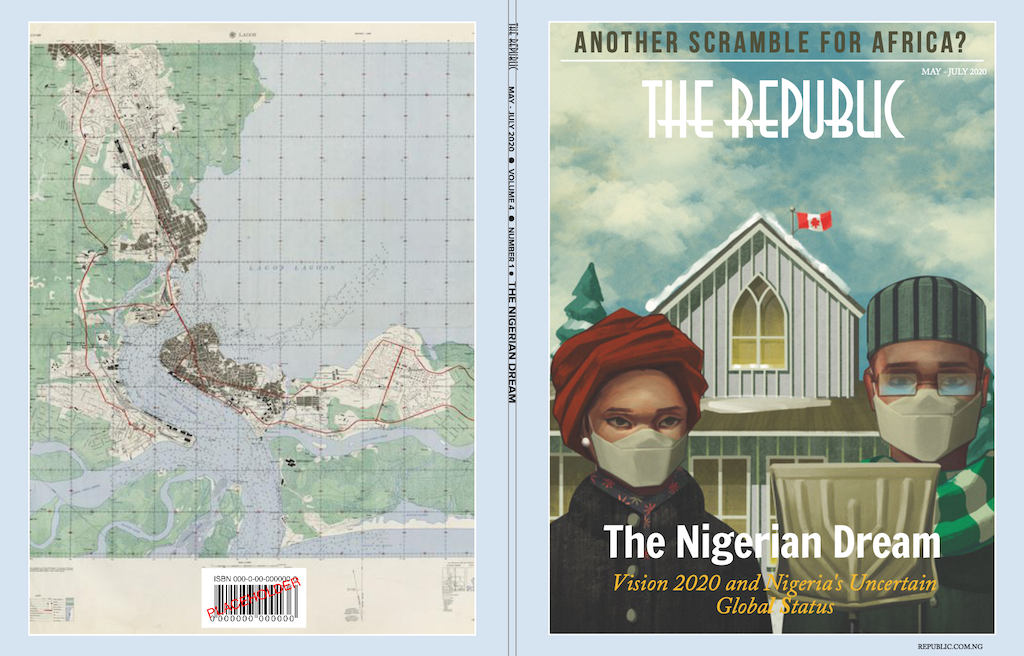Vol. 4, No. 2
The Nigerian Dream
IN THIS ISSUE
COVER ESSAYS
⎈ Big Dreams and Grand Ambitions: Nigeria’s Vision 2020 by Onyenekenwa Cyprian Eneh;
⎈ Nigeria’s Missing Multipliers: Women, Vision 2020 and Nigeria’s Legal Blindspots by Cynthia Igodo
⎈ The ‘Lion of Africa’ with Cat Claws: Nigeria’s Image Problem by Fife Ogunde; and
⎈ Pseudo Hope: A Discourse — On Nigeria’s Vision 2020 and Future Development by Bibiana Ossai x John Babalola
FEATURE ESSAYS
⎈ Moving Beyond Semantics: Examining the ‘Biafran Genocide’ Claim by Amarachi Iheke;
⎈ Closed for Business: Lessons from Nigeria’s Border Closure by Abdulrasheed Isah;
⎈ Nation Forgotten: Nigeria’s Neglected Pensioners by Wole Olayinka; and
⎈ A Wake-Up Call? — The Recent Travel Restrictions on Nigeria by Zainab Usman.
ART
⎈ Cover illustration: Adanna O.
Forthcoming
In our next issue, scholars and experts will critically discuss Russia and the New Scramble for Africa⎈



